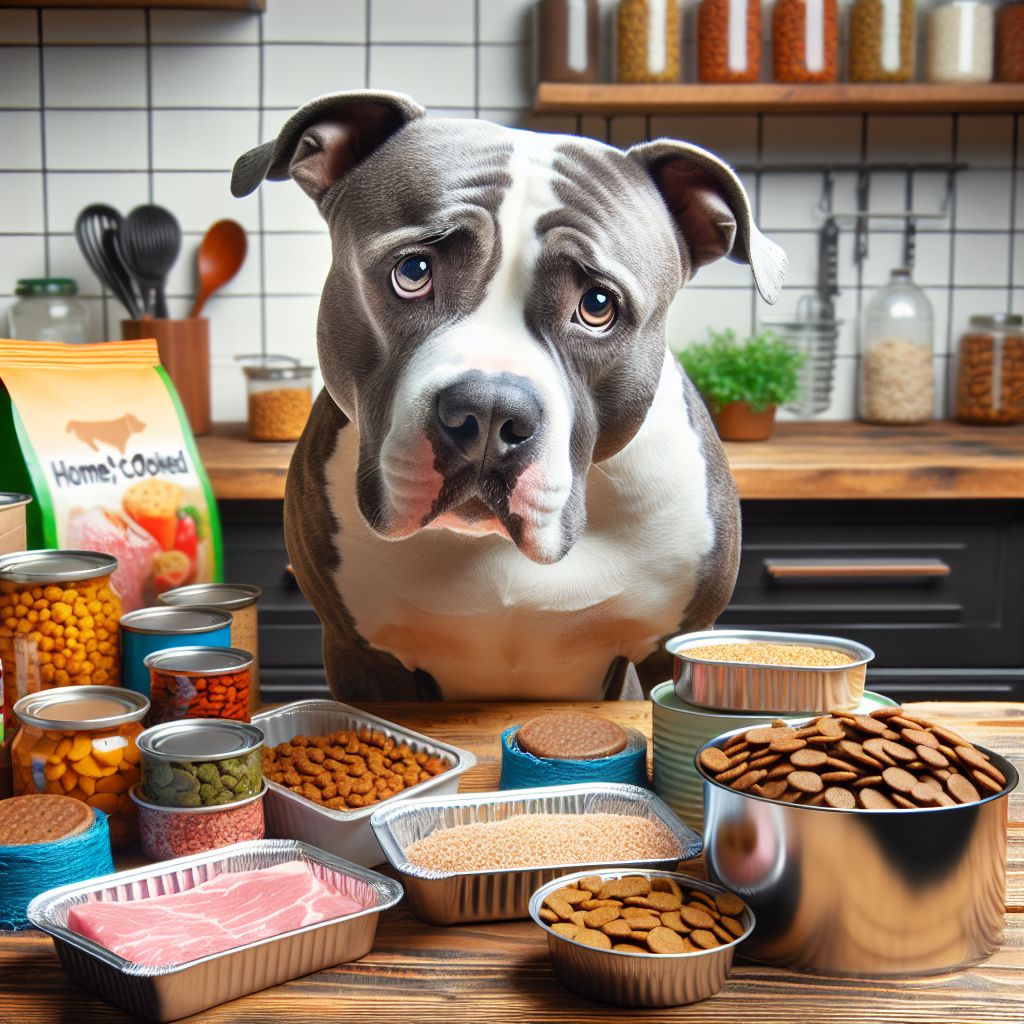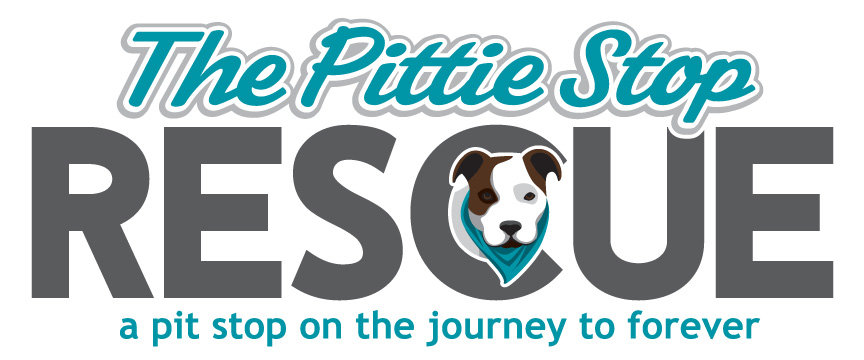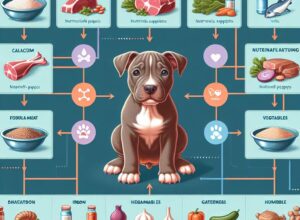
Key Takeaways:
- Recognize the signs of food allergies in Pitbull puppies, such as itching, digestive upset, and ear infections.
- Understand that common food allergens for Pitbull puppies include beef, chicken, dairy, wheat, and soy.
- Learn how to manage your puppy’s food allergies through elimination diets and selecting hypoallergenic foods.
- Discover the importance of reading food labels and choosing diets rich in key nutrients for your growing puppy.
- Consult with your vet to get a professional diagnosis and consider prescription diets if necessary.
Spotting the Signs of Food Allergies in Pitbull Puppies
It starts with a scratch. Then, perhaps, a nibble at the paws, or a shake of the head that’s more frequent than usual. These could be your first clues that your Pitbull puppy is suffering from food allergies. It’s essential to recognize these signs early on because they’re not just uncomfortable for your pup—they can lead to more serious health issues if left unchecked.
Common Symptoms of Food Allergies
- Excessive itching or scratching
- Red, inflamed skin or rashes
- Chronic ear infections
- Gastrointestinal upset like vomiting or diarrhea
- Constant licking of paws or other body parts
These symptoms can disrupt your puppy’s playful spirit and overall well-being. But it’s not just about discomfort. Allergies can weaken the immune system over time, making your pup more susceptible to other health problems.
Differentiating Allergies from Other Conditions
Now, just because your Pitbull puppy is scratching, don’t jump to conclusions. It’s crucial to differentiate between food allergies and other conditions like fleas, infections, or environmental allergies. That’s where a vet’s expertise becomes invaluable. They can perform tests to confirm if food is the culprit.
Besides that, observing when the symptoms occur can give you clues. If they’re constant, it might be food-related. If they come and go, consider environmental factors.
Understanding Food Labels and Potential Allergens
Let’s talk about food labels. They’re not just a jumble of words and numbers—they’re the key to unlocking what’s really in your puppy’s meals. Potential allergens can lurk in the list of ingredients, so it’s important to know what to look for. When scanning food labels, keep an eye out for common allergens such as:
- Proteins like beef, chicken, lamb, or dairy products
- Grains, particularly wheat, and corn
- Soy products
- Artificial colors, flavors, or preservatives
Remember, the ingredients are listed in order of quantity, so the first few ingredients make up the bulk of the food. For more detailed guidance, check out these sensitive stomach pitbull puppy diet tips & solutions.
How to Manage a Pitbull Puppy’s Food Allergy
Once you’ve identified that your Pitbull puppy has food allergies, it’s time to take action. Management starts with a plan—a clear, step-by-step approach to figuring out what’s causing the allergies and how to avoid those triggers.
Starting an Elimination Diet: The Step-by-Step Guide
An elimination diet is like a detective game. You’re eliminating suspects (ingredients) until you find the culprit. Here’s how to do it: Begin by understanding the importance of a varied diet for your Pitbull puppy to identify potential allergens.
- Start with a food that has a novel protein source—one your puppy hasn’t eaten before. This could be venison, duck, or fish, for example.
- Feed this food exclusively for 8-12 weeks. No treats, table scraps, or flavored medications unless they’re part of the approved diet.
- Watch your puppy closely. Note any changes in symptoms, whether they improve or worsen.
- If symptoms clear up, reintroduce old foods one at a time, waiting at least a week before adding another. This will help you pinpoint the allergen.
If your puppy reacts to a reintroduced food, you’ve likely found the allergen. It’s then a matter of avoiding this ingredient in the future.
Incorporating Hypoallergenic Foods into Your Puppy’s Diet
Hypoallergenic foods are designed with allergy-prone pups in mind. These diets often feature:
- Limited ingredients to minimize the risk of reactions
- Novel proteins your puppy hasn’t been exposed to
- Simple carbohydrates for easy digestion
There are many commercial hypoallergenic dog foods available, but it’s also possible to prepare homemade meals with guidance from your vet.
When transitioning to a new diet, do it gradually. Mix the new food with the old in increasing amounts over a week to prevent digestive upset.
Choosing the Right Diet for Your Allergy-Prone Pitbull Puppy
The right diet for your Pitbull puppy meets their nutritional needs without causing allergic reactions. But with so many options on the market, how do you choose?
First, consider a diet that’s high in omega-3 fatty acids, which can help reduce inflammation and promote skin health. Next, look for foods with quality protein sources that aren’t common allergens. And don’t forget about digestible carbohydrates and fibers, which support a healthy gut.
Key Nutrients for a Growing Pitbull Puppy
Growing Pitbull puppies need a balanced diet to thrive. Focus on these key nutrients:
- High-quality protein for muscle development
- Calcium and phosphorus for strong bones and teeth
- Fatty acids like omega-3 and omega-6 for skin and coat health
- Vitamins and minerals for overall vitality
- Antioxidants for immune system support
Remember, the best diet is one tailored to your puppy’s individual needs. This might take some trial and error, but it’s worth it for your pup’s health and happiness.
Recommended Hypoallergenic Foods and Brands
Several reputable brands offer hypoallergenic dog food. Some of the top choices include:
- Blue Buffalo Basics Limited Ingredient Diet
- Canidae Grain-Free PURE
- Natural Balance L.I.D. Limited Ingredient Diets
- Royal Canin Veterinary Diet Hydrolyzed Protein
Always consult with your vet before switching to a new food, especially if you’re considering a prescription diet.
Working with Your Vet to Overcome Puppy Food Allergies
Overcoming food allergies isn’t a journey you should embark on alone. Your vet is your ally, providing valuable insights and support along the way.
A vet can conduct allergy tests to confirm food sensitivities and recommend specific diets or supplements. They can also help you monitor your puppy’s progress and adjust the diet as needed.
Prescription diets, which are formulated to meet the needs of dogs with specific allergies, might be suggested. These diets are clinically tested and often have a higher success rate than over-the-counter options.
Remember, patience is key. It might take time to find the perfect diet, but with careful observation and professional guidance, your Pitbull puppy can lead a happy, allergy-free life.
FAQs
Why are Pitbull puppies prone to food allergies?
Pitbull puppies may have a genetic predisposition that makes them more susceptible to food allergies. These can manifest as skin irritations and gastrointestinal issues. Their short coats can expose their skin more, which might make skin-related symptoms more common. Food allergies are usually triggered by an immune response to certain proteins in their diet. Since Pitbull puppies have a strong immune system that can sometimes react excessively, they might wrongly treat some food proteins as threats. Understanding this can help in managing their diet and health more effectively.
How long should an elimination diet last for a Pitbull puppy?
An elimination diet should be strictly followed for a minimum of 8 to 12 weeks. This duration is necessary to completely clear out any allergens from your puppy’s system and to monitor for any symptomatic improvements. Patience is essential during this time as identifying the precise allergen can be challenging but crucial for developing a long-term dietary plan that excludes the identified allergens.
Can my Pitbull puppy outgrow food allergies?
While some dogs might outgrow certain types of allergies, particularly those to environmental factors, food allergies are generally a lifelong issue. It’s uncommon for Pitbull puppies to completely outgrow food allergies; thus, these usually require continuous dietary management. Regular consultations with your vet are advisable to adjust your puppy’s diet as they grow and their nutritional needs change.
Are grain-free diets the best option for managing food allergies in Pitbull puppies?
Grain-free diets are not universally the best option for all food-allergic dogs. While some Pitbull puppies might be allergic to grains, others could react to different ingredients. It’s crucial to specifically identify the allergens affecting your puppy before making significant dietary changes. Consulting a vet is vital to ensure that a grain-free diet meets all your puppy’s nutritional requirements.
How can I tell if a hypoallergenic diet is benefiting my Pitbull puppy?
Signs that a hypoallergenic diet is effective include a reduction in allergy symptoms like itching, skin redness, or digestive problems. Improvements such as higher energy levels, a shinier coat, and better overall health are also good indicators. Maintain a detailed diary of your puppy’s symptoms and diet to monitor their response to dietary changes. Achieving visible results might take time, so consistency and patience are important in managing your puppy’s diet effectively.



